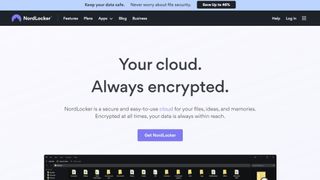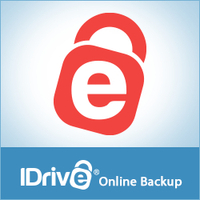El mejor almacenamiento en la nube (enero de 2023)
¿Buscas los mejores servicios de almacenamiento en la nube para guardar tus fotos, archivos y datos? Los tenemos todos.

El comienzo del año suele ser cuando repasamos nuestra lista de propósitos y, bueno, los tachamos. Adoptar el almacenamiento en la nube o volver a familiarizarte con el servicio o servicios de almacenamiento en la nube que utilizas puede ser una buena idea. En enero de 2023 compré a regañadientes Google One porque me quedé sin espacio en la bandeja de entrada de mi correo electrónico. Además de permitirte superar el infame límite de 15 GB, también se vincula aún más a su solución de almacenamiento en la nube. Inteligente Google, muy inteligente.
Octavio Castillo Senior Editor, TechRadar Pro
Encontrar el mejor servicio de almacenamiento en la nube puede ser todo un reto, con todo tipo de factores a tener en cuenta, desde el precio hasta la capacidad, la seguridad y la fiabilidad, por nombrar sólo algunos.
Como individuos, producimos y manipulamos cientos de GB de contenido. Una encuesta de TechRadar Pro sobre almacenamiento en la nube encargada en marzo de 2022 reveló que casi el 5% de los encuestados almacenaba más de 1 TB de datos en línea. Lo más preocupante es que un tercio de los encuestados no sabía cuántos datos tenía almacenados en línea.
Tanto si eres un novato en el almacenamiento en la nube como un veterano, te indicaremos la dirección correcta explicándote qué es el almacenamiento en la nube, cómo te beneficia y cómo elegir a tu proveedor perfecto.
Quienes deseen saber más sobre el almacenamiento en la nube pueden consultar qué es el almacenamiento en la nube, cómo probamos los proveedores de almacenamiento en la nube o leer la extensa lista de servicios de almacenamiento en la nube que hemos revisado hasta la fecha.
Si sólo buscas los mejores proveedores, los hemos clasificado en función de su capacidad, precio, seguridad, facilidad de uso y mucho más, y puedes leer nuestras conclusiones con sólo desplazarte un poco por la página.
Nos hemos centrado en paquetes de pago de calidad para consumidores y pequeñas empresas, pero si eso no se ajusta a tus necesidades, también tenemos guías sobre el mejor almacenamiento gratuito en la nube, las mejores ofertas de almacenamiento en la nube de por vida, las mejores ofertas de almacenamiento ilimitado en la nube, el mejor almacenamiento en la nube para empresas, los mejores servicios de copia de seguridad en la nube y el mejor almacenamiento de fotos en la nube.
Las mejores ofertas de almacenamiento en la nube en este momento
¿Por qué puedes confiar en TechRadar?
1. IDrive es nuestro mejor proveedor de almacenamiento en la nube
El veterano del almacenamiento en la nube IDrive ofrece una increíble cantidad de espacio en línea por un pequeño desembolso en una amplia gama de plataformas. 10 TB de almacenamiento por 3,98 $ el primer año es inigualable, al igual que la compatibilidad con un número ilimitado de dispositivos y el amplio sistema de archivos de control de versiones disponible.
2. Consigue almacenamiento en la nube de por vida de pCloud
pCloud es más caro que la competencia, pero el pago único significa que no tendrás que preocuparte por las cuotas de renovación que pueden ser terriblemente caras. 2TB de por vida por debajo de $400 dólares mientras que el plan de 10TB cuesta $1,190.
3. Consigue 50 dólares de descuento en los planes anuales de Sync
Los profesionales que trabajen solos pueden acceder al almacenamiento en la nube de Sync por sólo 24 $ al mes (que se reducen a 20 $ si se factura anualmente). Los equipos, por su parte, pueden acceder a almacenamiento ilimitado por 18 $ por usuario y mes (o sólo 15 $ si se factura anualmente), sólo con esta oferta exclusiva.
¿Cuál es el mejor servicio de almacenamiento en la nube?
Si buscas el mejor servicio de almacenamiento en la nube en general, IDrive es lo que necesitas. Cuenta con un proceso de configuración sencillo, dispositivos ilimitados por cuenta y una versión de pago que sólo cuesta 3,98 $ por 10 TB durante el primer año. Además, encabeza nuestras listas de Mejor almacenamiento gratuito en la nube, Mejor copia de seguridad en la nube y Mejor almacenamiento en la nube para fotos.
PCloud es otro servicio que compite por el título de mejor proveedor de almacenamiento en la nube, gracias a funciones como sus reproductores integrados, potentes herramientas para compartir archivos y planes de por vida de gran valor.
Sync sólo sincroniza archivos, como adivinarás por su nombre, pero lo hace muy bien y es muy fácil de usar. Backblaze es una completa herramienta de copia de seguridad que ofrece almacenamiento ilimitado, y ahora mismo puedes conseguir un año de Backblaze gratis al comprarlo con ExpressVPN. Y si buscas simplicidad, IceDrive te da fácil acceso a tus archivos en la nube por un precio inicial muy bajo.
Los mejores servicios de almacenamiento en la nube de 2023 a detalle:


Espeficicaciones
Razones para comprar
Razones para no comprar
IDrive encabeza nuestras listas de mejor almacenamiento en la nube con su atractiva mezcla de aplicaciones fáciles de usar, excelentes herramientas de copia de seguridad, gran seguridad y gran relación calidad-precio.
Hay características destacadas en todas partes. ¿Mucho hardware que proteger? Instálalo en tantos dispositivos como quieras. Añade o edita un archivo en un dispositivo y se sincronizará en tiempo real con todos los demás. Y las completas herramientas de copia de seguridad permiten protegerlo todo, desde archivos y carpetas individuales, hasta crear una imagen completa de tu dispositivo, para recuperarlo fácilmente tras un desastre. (IDrive puede incluso enviarte una unidad física con todos tus datos, una gran ventaja si tienes una conexión a Internet lenta y tardará una eternidad en descargarse).
Hagas lo que hagas, la autenticación de dos factores protege tu cuenta, y el cifrado de extremo a extremo garantiza que nadie pueda ni oler tus datos. Las aplicaciones altamente configurables permiten ajustar todo tipo de parámetros de bajo nivel (limitación del ancho de banda, verificación de datos), pero si no eres de los técnicos, tampoco pasa nada: puedes configurar IDrive en un momento y olvidarte de que está ahí, dejando que el servicio haga su trabajo.
Ahora mismo también hay una oferta espectacular que ofrece 10 TB por sólo 3,98 $ el primer año. Y si aún tienes dudas, la empresa ofrece incluso un plan gratuito para siempre con 10 GB de espacio, perfecto para probar el servicio y asegurarte de que es adecuado para ti.


Espeficicaciones
Razones para comprar
Razones para no comprar
Internxt es un proveedor centrado en la seguridad que hace mucho más que la mayoría para garantizar la seguridad de tus archivos. La encriptación de extremo a extremo y de conocimiento cero impide que nadie acceda a tus datos, y una vez subidos tus archivos, se dividen en partes y se distribuyen por una red peer-to-peer. Almacenar tus datos en varios servidores no sólo los oculta a los piratas informáticos, sino que también significa que es menos probable que pierdas archivos por un fallo de hardware u otro desastre.
Las aplicaciones bien diseñadas e intuitivas hacen que subir archivos sea tan sencillo como arrastrar y soltar. La posibilidad de sincronizar cualquier carpeta mantiene actualizados todos tus dispositivos, y puedes compartir archivos fácilmente mediante enlaces personalizados.
Entre las inusuales funciones adicionales se incluye un comprobador de contraseñas para identificar las contraseñas débiles, e incluso hay un antivirus gratuito para identificar y eliminar el malware de tus archivos.
Internxt también tiene sus problemas. No puede igualar las funciones avanzadas que encontrarás en OneDrive o Dropbox. Los precios son más elevados que muchos: hay un plan gratuito de 10 GB, pero conseguir la asignación completa es un engorro (tienes que suscribirte al boletín, invitar a cuatro amigos y más).
Aún así, el enfoque de Internxt de dar prioridad a la seguridad y la calidad de sus aplicaciones le confieren un gran atractivo, y si eso es lo que buscas, merece con creces un lugar en tu lista de favoritos.


Espeficicaciones
Razones para comprar
Razones para no comprar
pCloud, con sede en Suiza, es un completo servicio de almacenamiento en la nube que ofrece una pila de funciones esenciales de copia de seguridad, intercambio y gestión de archivos.
Empezar es fácil. Las aplicaciones personalizadas para Windows, Mac, Linux, Android e iOS cargan datos mediante una conexión segura encriptada TLS/SSL, y luego copian tus archivos en al menos tres servidores pCloud distintos para mayor protección. Puedes sincronizar archivos clave en todos tus dispositivos (hasta los cinco recomendados por plan, en cualquier caso), y puedes compartirlos libremente con otros.
PCloud permite a los usuarios crear páginas de descarga personalizadas con mensajes personalizados para cada archivo compartido. Puedes crear presentaciones de imágenes compartidas, e incluso reproducir archivos de audio o vídeo directamente desde tu espacio de almacenamiento (sin necesidad de descargarlos primero.)
Todo esto parece costoso a primera vista, pero espera: elige los planes de por vida de pCloud y podrás obtener 500 GB (o 2 TB o 10 TB), para siempre, por una tarifa única nominal. También tiene previsto ofrecer hasta 16 TB de almacenamiento en la nube, pero aún no se han confirmado los detalles.
Optar por el plan empresarial añade un montón de extras valiosos: encriptación del lado del cliente, gestión centralizada de empleados, uso compartido seguro de archivos, posibilidad de restaurar versiones de archivos de hasta 180 días de antigüedad (frente a los 30 del plan personal). Y al igual que con IDrive, un plan gratuito de 10 GB te permite probar el servicio sin riesgos.
- Read our full pCloud Cloud Storage review


Espeficicaciones
Razones para comprar
Razones para no comprar
As you'll probably guess from the name, Sync.com is a straightforward file syncing service: install the app across all your hardware, drop a file into the Sync folder on one device, and it'll quickly appear on all the others.
While this design limits Sync's backup abilities (you're only protecting what's in the Sync folder), it makes the apps exceptionally easy to use, and they still manage to beat many providers in other areas.
Versioning support allows you to restore file versions from up to the last 180 days, for instance (most providers stop at 30 days.) The mobile apps can automatically sync photos and videos as you take them. Sophisticated file sharing includes options to create read-only, password-protected or expiring links, set download limits and more.
Microsoft 365 users can open and edit Office documents directly from their Sync space. You're able to browse your files directly from Windows File Explorer or Mac Finder, making it easier to find what you need. And security features such as two-factor authentication and end-to-end encryption keep your data and transfers safe.
There are a host of business and team-friendly features. You can request files from multiple people, add comments to file sharing links, share folders with teams, view activity logs and manage everyone from a central console.
Prices are higher than most, with even the cheapest 2TB Solo Basic plan costing $96 a year, but if Sync's feature set matches your needs then it could be a smart choice. A 5GB free plan is available if you'd like to try it out.
- Read our full Sync cloud storage review


Espeficicaciones
Razones para comprar
Razones para no comprar
While some cloud storage services try to offer every possible file sharing and syncing feature, Backblaze takes a simpler approach: it handles personal and business backups, and that's it.
Fortunately, the company does this very well. All plans offer unlimited backup space, for instance, with no limit on file size. How many providers on this list can say that? (We'll save you looking: none.)
Worried about lengthy download times if you need to restore everything? No problem, the company can send you a hard drive with your data (up to 8TB.)
Backblaze is super-easy to use; just install the Windows or Mac apps (no mobile backups, unfortunately) and they'll automatically detect files as they're changed, then upload them to the cloud.
Smart security touches include two-factor verification to protect your account, while a private encryption key ensures no-one (not even Backblaze) can access your files online.
Pricing is fair. There's no free tier, but a 15-day trial gives you a chance to check out the service for yourself.
If you're also looking for a VPN to protect yourself online, though, you can currently get Backblaze completely free for a year when you sign up to our #1 favorite, ExpressVPN (and you get three extra months of ExpressVPN protection, too.)
- Read our full Backblaze review


Espeficicaciones
Razones para comprar
Razones para no comprar
UK-based cloud storage newcomer IceDrive may not yet have the power and polish of the top contenders, but the company already has more than enough nifty features to justify a very close look.
Windows users can browse their storage space from Explorer, for example, moving, renaming, opening and even editing files, just like working on a local drive.
A custom Windows, Mac and Linux app goes further, allowing you to browse files, preview documents, and stream your media files with a built-in player without having to download them first.
Smart service design uses multiple encryption technologies to keep your precious data safe from snoopers. The apps encrypt files using a private encryption key which never leaves your devices, for instance. Even if the world's best hackers managed to access IceDrive's servers, your data would be locked up and inaccessible.
A 10GB free plan gives you an easy way to get started, although with some restrictions (no client-side encryption, a 3GB/ day bandwidth limit.) IceDrive's subscriptions are so reasonably-priced, though, that we can forgive any free deficiencies.
- Read our full IceDrive review


Espeficicaciones
Razones para comprar
Razones para no comprar
NordLocker is a simple but highly secure cloud storage platform from the people behind NordVPN, one of the best VPNs around.
The service is supremely easy to use. You begin by creating one or more lockers, which look like regular folders on your Windows and Mac device (Android and iOS devices can only use the more basic web interface.) Drag and drop files into a locker, and that's it, they're immediately updated to the cloud.
Super-tight security sees your files protected by industry-standard AES-256 and xChaCha20-Poly1305 encryption algorithms. Multi-factor authentication prevents attackers from hacking your account, and zero-knowledge architecture ensures only you can decrypt your files.
File sharing is relatively limited. You can do it, but there aren't many options, and your recipients must have a NordLocker account and be using the app.
A big introductory discount means prices look reasonable, but increase later. A free plan gives you 3GB storage to play with, a little disappointing when you often get 5-10GB elsewhere, but that's still enough to see how NordLocker works for you.
- Read our full NordLocker review


Espeficicaciones
Razones para comprar
Razones para no comprar
Microsoft OneDrive isn't the most powerful or feature-packed cloud storage services around, but it more than handles the basics, and there's a lot to like here for anyone committed to the Microsoft world. Additionally, subscription plans offer massive storage that is more cost-effective than almost any other provider.
OneDrive is well integrated into Windows 10 and 11, for instance. You can work with the service from Explorer, dragging and dropping files to sync them with the cloud and any other devices using your Microsoft account. Microsoft 365 users who store their documents on OneDrive get auto saving to the cloud, and collaboration options including the ability to work on documents simultaneously with others, direct from the Office apps or web interface.
Microsoft hasn't forgotten other platforms, and OneDrive also has a straightforward Mac app, along with some very well-designed, intuitive Android and iOS apps. Xbox One gamers can use it to protect their game save files, and there's a capable web interface, too.
OneDrive's free plan looks a little disappointing, giving you a mere 5GB of storage. But you can upgrade to 100GB And if you’ll make use of Microsoft Office, signing up for Microsoft 365 Personal not only gets you Outlook, Word, Excel and PowerPoint, but also boosts your OneDrive storage to a massive 1TB each for up to 6 users.
- Read our full Microsoft OneDrive review


Espeficicaciones
Razones para comprar
Razones para no comprar
Google Drive is a cloud storage service that's very easy to access. Got an Android device? It's built in. A Google account? Access it from your browser. There are official Mac and iOS apps, and a host of third-apps with Drive support.
Drive's integration with Google's other apps is a highlight. It doesn't just preview Office documents; Google's Sheets, Docs and Slides can create, edit and share cloud files with others, without ever downloading anything.
The free plan benefits from a market-leading 15GB storage, and there's more available with other apps (Google Photos specifically stores HD photos, for example).
Google Drive more than delivers on the cloud storage essentials, with easy access to data from apps and your browser, the ability to restore previous versions of files, and offline access for when you're not connected. But it's not all good news. Syncing isn't as simple as some competitors, and there's no end-to-end encryption; in theory, Google could see your files.
If you're not a Google fan, tying yourself so tightly into the company's ecosystem may not appeal. For everyone else, it offers a slick and powerful free service, and plenty of benefits if you upgrade. The $99.99 upgrade to Google One doesn't just get you 2TB of storage, but also includes 10% off Google Store purchases, access to Google experts, and even an Android and iOS VPN.
- Read our full Google Drive review
How we tested the best cloud storage providers?
When we test a cloud storage provider, we look at the upload and download speeds of file transfers but this is a minor component of the overall rating as there are scores of other factors that affect your download or upload speeds that cannot be easily mitigated (contention rate, time of day, server load etc).
The other thing you’ll probably want to consider is cost. While the capital expenditure for cloud storage is usually very low (or nonexistent), the operational expenditure can add up when you factor in additional storage requirements and premium features. Be sure to check your cloud contract carefully to ensure you don’t receive an unexpectedly large bill.
Credentials around services and security standards are also key. Look for a cloud storage provider that can boast the certifications that promise an SLA you can rely on - and safeguards that protect your data. In addition, make sure your storage provider offers the scalability you need should you grow - and a flexible pricing model to accompany it.
Last but certainly not least is the level of support that a cloud storage service will provide to its customers, whether it's 24x7 over the phone or web-based only. Our reviews include all this and more details including usability, and platform compatibility, and compare each cloud storage service to similar rivals, across key features and pricing, so you can make an informed decision based on as much data as possible when it comes to the time when you will choose the best cloud storage provider for you.
For more detailed coverage, read: Cloud storage reviews: how we tested them
What is cloud storage?
Cloud storage is a remote virtual space, usually in a data center, which you can access to save or retrieve files.
It’s important to know a cloud storage service can be trusted with your files, so most providers go to a lot of trouble to make sure they’re safe. They’ll upload and download files via a secure encrypted connection, for instance. Maximum security data centers ensure no unauthorized person gets access to their servers, and even if someone did break in, leading-edge encryption prevents an attacker viewing your data.
There are dozens of services which are powered by some form of cloud storage. You might see them described as online backup, cloud backup, online drives, file hosting and more, but essentially they’re still cloud storage with custom apps or web consoles to add some extra features.
You won’t have to look far to find your nearest cloud storage service, though, because there’s a very good chance you have access to one already. Facebook and Twitter provide free cloud storage when they allow users to store photos and videos on their servers, for instance, while even the most basic free Google account gets you 15GB of cloud storage space via the Google Drive app.
How to choose the best cloud storage service?
Finding your perfect cloud storage solution starts by thinking about your needs. What are you hoping the service will do?
If your goal is to protect all your data from harm, then look for a service with solid backup tools and the ability to access your files from anywhere.
If you'd like to share a group of files - photos, say - across multiple devices, then you'll need quick and easy syncing abilities.
If you're more interested in sharing individual files or folders with others, look for a platform which supports password-protected or time-limited links, anything that helps you stay more secure. Businesses will benefit from collaboration tools, too, allowing users to work on files together, add comments and more.
Pay attention to the figures. Most cloud storage keeps previous versions of your files for up to 30 days, for instance, but that's not always the case. If your provider says it supports 'versioning', that's good, but check the details, see how it really compares to the competition.
You'll want to consider a provider's cost and capacity, too, but be careful. Don't simply opt for a high-capacity plan just because it seeks better value: think about whether you really need that much space. And when it comes to price, browse the small print, look out for hidden charges or fees which jump on renewal, make sure you know exactly what you're getting.
What to consider when choosing cloud storage services
Given the number of cloud storage providers on the market today - from tech giants like Google to smaller, more niche players - choosing the solution that’s right for you isn’t easy. One of the first things you’ll probably want to consider is cost. While the capital expenditure for cloud storage is usually very low (or nonexistent), the operational expenditure can add up when you factor in additional storage requirements and premium features. Be sure to check your cloud contract carefully to ensure you don’t receive an unexpectedly large bill.
Credentials around service and security standards are also key. Look for a cloud storage provider that can boast the certifications that promise an SLA you can rely on - and safeguards that protect your data. In addition, make sure your storage provider offers the scalability you need should you grow - and a flexible pricing model to accompany it. Perhaps the best thing to do when choosing a cloud storage provider is simply to shop around. There’s bound to be a solution that suits your needs - but don’t simply go with the first cloud provider you find.
Free vs Paid cloud storage: what you need to know
If your backup budget is low (or non-existent) then opting for free cloud storage might appeal, but is it the right choice for you?
Capacities are often very low (NordLocker's free plan has just 3GB), which is likely to rule out free plans for any heavy-duty tasks. Some free options may have other limits, or leave out important features from the paid plans. IceDrive's 10GB plan looks generous, for instance, but you can only use 3GB bandwidth a day, and there's no client-side encryption.
These may not be deal-breaking issues, at least if your needs are simple, and you can do better with a little work. Signing up with one provider doesn't mean you can't use another, for instance: set up IDrive for one task, Google and OneDrive for a couple of others, and suddenly you've 30GB to play with.
Free plans aren't only useful for bargain-hunters, though. However much you've got to spend, the real advantage of a free plan is it gives you time to try out different platforms before you commit.
Cloud storage jargon buster
Baffled by cloud-storage techno-speak? We've got the key terms you need to know.
AES-256: one of the strongest encryption algorithms around, AES-256 is often used to protect cloud storage and ensure no-one else can access your data.
At-rest encryption: encrypts your data while stored on a device, protecting it from snoopers. See In-transit encryption.
Cloud: servers that are accessed over the internet, along with the software, databases, computing resources and services they offer.
Continuous data backup: a clever technology which automates backups by looking out for new and changed files, and uploading them as soon as they appear.
Data center: one or more physical facilities which house networked computers and the resources necessary to run, access and manage them: storage systems, routers, firewalls and more.
Egress: the transfer of data from a network to an external location, such as downloading a file from a cloud storage account. (See Ingress.)
End-to-end encryption: a method of communicating data which ensures no-one but the sender and receiver can read or modify it. In cloud storage terms, it means your files can't be intercepted and accessed by anyone, even your provider.
Ingress: the transfer of data into a network, such as uploading a file to a cloud storage account. (See Egress.)
In-transit encryption: encrypts your data before transmission to another computer, and decrypts it at the destination. Even if an attacker can intercept your communications, they won't be able to read your files. (See At-rest encryption.)
Private cloud: a cloud computing environment which offers services to a single business only. A business might use its own private cloud storage to ensure no other company gets to handle its data, for instance, improving security. (See Public cloud.)
Private encryption key: a method of encryption which means only you can access your encrypted files. This guarantees your security, but is also a little risky, because if you forget your password, the provider can't help you recover it, and your data is effectively lost.
Public cloud: a network of computers which offers cloud services to the public via the internet. Google, Microsoft and Amazon are examples of public cloud providers. (See Private cloud.)
S3: A fast flexible cloud storage type invented by Amazon and used by major companies like Netflix, reddit, Ancestry and more.
Sync: the process of keeping a set of files up-to-date across two or more devices. Edit a file on one of your devices, for instance, and a cloud storage service which supports syncing will quickly upload the new version to all the others.
Two-factor authentication: a technology which requires you to enter an extra piece of information (beyond just a username and password) when logging into a web account: a pin sent by email or SMS, a fingerprint, a response to an authenticator app. It's an extra login hassle, but also makes it much more difficult for anyone to hack your account. Sometimes called 2FA or two-step authentication.
Versioning: the ability to keep multiple versions of a file in your cloud storage area. Accidentally delete something important in a document last Tuesday, and even if you've updated the file several times, you may still be able to recover the previous version.
Zero-knowledge encryption: a guarantee that no-one else, not even your cloud provider, has the password necessary to protect your data. That's great for security, but beware: if you forget your password, the provider can't remind you, and your files will be locked away forever.
If you want to learn more about cloud storage
- Balancing on-premises vs cloud storage needs
- What is the smart city, and why is cloud storage key?
- Cloud storage could end up being much greener than data centers
- Cloud-native apps demand cloud-native storage systems
- How does cloud storage work?
- What is cloud storage?
- We've also featured the best cloud document storage
¿Eres un pro? Suscríbete a nuestro newsletter.
Suscríbete a la newsletter TechRadar Pro para estar al día sobre noticias, análisis, opiniones y más para que tu empresa pueda tener éxito.

Octavio Castillo ha dado cobertura a la tecnología en diferentes medios por más de una década. Ha sido testigo del crecimiento y evolución de los gigantes tecnológicos


